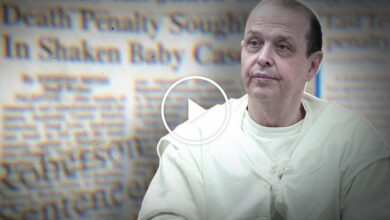
Journalists, take note: For decades, big shots atop U.S. agencies have tried to stifle, delay or reshape certain sensitive stories by telling editors and reporters that their publication will compromise national security. Now, considering the Assange findings, we must apply steroidal skepticism to any such claims.
“They overdo it,” James Risen, who covers such matters for the Intercept and formerly for the New York Times, said of national security officials working the media. “And no one ever goes back to scrutinize.”
The WikiLeaks saga was a bottomless affair. In July 2010, for instance, the anti-secrecy group dropped more than 75,000 documents from its so-called Afghan War Logs, some of which included “the names of human sources who were vulnerable to retribution by the Taliban in Afghanistan or the insurgency in Iraq,” per a June 2020 indictment. A member of the Taliban later told a reporter: “We will investigate … whether the people mentioned are really spies working for the U.S. If they are … we know how to punish them.”
The New York Times, the German magazine Der Spiegel and Britain’s Guardian newspaper received early access to WikiLeaks’ Afghan documents and edited out names of those who could have been at risk. Yet WikiLeaks’ spotty approach to redaction drew warnings from government officials. “The irresponsible and reckless behavior of WikiLeaks has of course caused damage — and will continue to be damaging in the months and years to come,” said a spokeswoman for James R. Clapper Jr., then the director of national intelligence. Similarly bleak assessments were easy to find in news accounts at the time, alongside occasional reporting that the harm was being blown out of proportion.
But when it comes to foretelling doom, the national security establishment is turning into an emperor with no clothes. These riffs about unspecified damage are familiar to Beltway journalists on the national security beat, such as Risen, who has heard many versions and proved them wrong.
As Risen worked on a 2003 story about what he called a “harebrained” scheme to foist flawed nuclear-weapon blueprints on Iran, then-national security adviser Condoleezza Rice was determined to kill the story. According to talking points cited by Risen here, Rice believed that putting the information in the “wrong hands could easily lead to the death of a U.S. citizen … and conceivably contribute to the deaths of millions of innocent victims of a foreign nuclear weapons program.” Though the Times didn’t publish the Iran nuclear story, Risen put it in his book “State of War.” Rice’s doomsday scenarios haven’t materialized.
As Risen and his colleague Eric Lichtblau reported a story on warrantless surveillance in 2005, President George W. Bush told Times publisher Arthur Sulzberger Jr. he’d have “blood on your hands” if the paper proceeded. When asked what harm came of the story, which the Times published after a long delay, Risen responded: “zero.”
And then there was the pushback against a 2006 story about how the CIA and other agencies sifted through international bank data as part of an anti-terrorism campaign. Publishing the piece, said the government, “would lead to the collapse of the international banking system,” Risen shared with me. It would take two more years for that system to crash, he joked, though not because of his work.
Risen’s scoops concerned matters of much greater sensitivity than your average WikiLeaks document, which were heavy on diurnal reports of “significant activities” in the Afghanistan and Iraq war theaters, as well as State Department cables. Yet the government’s response in all of these cases is uniform: Denounce, fulminate, exaggerate.
Glenn Greenwald, who won the Pulitzer Prize for his stories at the Guardian regarding Edward Snowden’s documents release, says that in every significant leak case going back to the Pentagon Papers, the government claims harm, yet “can never identify a single document that did this or a single person who was harmed.” Over-classification of government documents contributes to the malaise, says Greenwald, noting that some items in the Snowden archive related to “extremely banal” things such as vacation requests that were accorded “secret” or “top secret” status.
Dean Baquet, a former executive editor of the New York Times, weighed in via email about how he approached such subjects: “My standard was always that the government needed to prove serious harm, particularly that lives could be endangered. That happened on occasion.”
Between 50 and 90 percent of classified documents could be disclosed to the public without causing harm, according to one estimate. However, instead of choosing that route, national security officials stand behind the sanctity of the system by citing harm that they cannot prove.
“Unauthorized disclosures damage trust in the system and can cause damages in specific matters,” said John Fitzpatrick, a former national security official in the Trump White House. But, he cautioned, “Over classification and a culture of ‘security before all else’ also erodes trust, making discussion of actual damage more complex than simply asserting that it has happened.”
Comments last week from State Department spokesman Matt Miller highlighted the flimsiness of the status quo. He said that Assange’s actions “put the lives of our partners, our allies and our diplomats at risk, especially those who worked in dangerous places like Afghanistan and Iraq” and that the department took special precautions to move people “out of harm’s way” prior to the release of the WikiLeaks cables.
But Miller couldn’t deliver when asked to cite a single example of harm, though he claimed that leaks “chill the ability of American personnel to build relationships with people” overseas. A free society isn’t always the easiest to govern.
Read More


